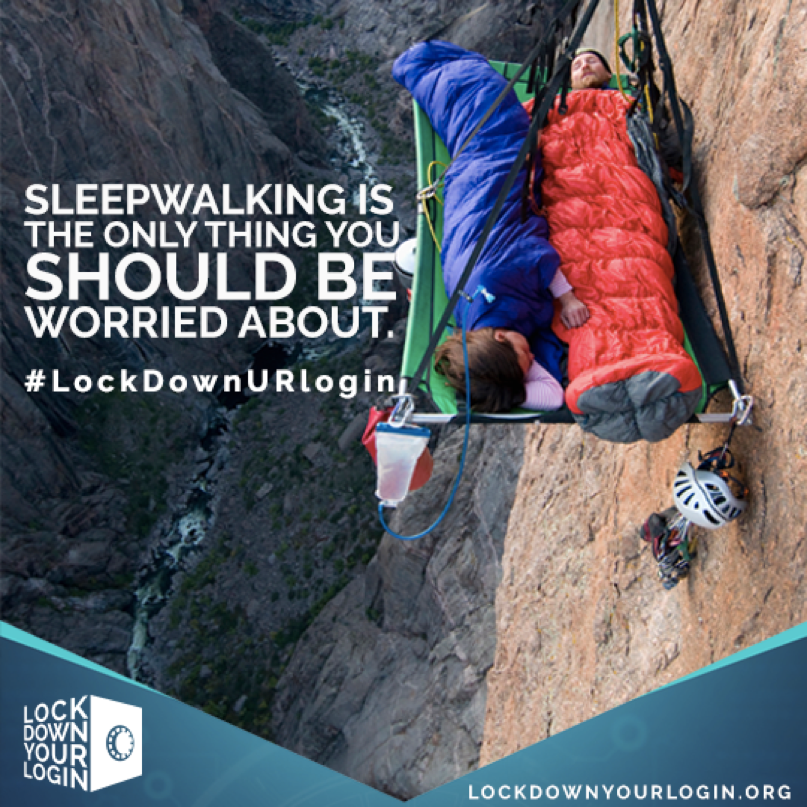Campus Security Awareness Campaign 2018
This post is part of a larger campaign designed to support security professionals and IT communicators as they develop or enhance their security awareness plans. View all 12 monthly blog posts with ready-made content by visiting our security awareness resource page.
Most of us would like to say that we are extremely diligent about protecting our data and backing it up on a regular basis. However, we know that this is not always the case. Fortunately, backups are easier than ever before thanks to a plethora of options available to most end users. We just need to remind students, faculty, and staff that it's critical to create a backup plan for important files and make sure those backups are stored in a separate location (physically or in the cloud) so they can avoid losing valuable information if their computer is lost, stolen, compromised, or simply fails to turn on one day. This month's content will help you get the word out on your campus about the importance of backups.
Get the Word Out
Newsletter or Website Content
The only way to protect yourself against valuable data loss is through regular backups. Ideally, important files should be backed up at minimum once a week, or every day, depending on how critical they are to you. This can be done manually, automatically, or using combination of the two methods. (Briefly review this 2017 backup awareness survey to see how often most computer owners backup their data. Do you fall into the daily, weekly, monthly, annually, or never category?)
When it comes to backups, just like security, you want to find a balance of being thorough but efficient. We have all heard disastrous stories of losing homework due to the blue screen of death or a misplaced cell phone that tragically stored the only copy of family photos. In addition, you could fall victim to ransomware or another malicious attack that leaves you with no choice but to reimage your computer. It never hurts to consider your backup strategy and come up with a plan that leaves you feeling safe and secure. Here are some tips to get you started.
- Data loss happens all the time, but it is entirely preventable. You just need to create a backup plan.
- Your critical data should never reside in a single place.
- The ideal backup strategy will typically include both an online backup service (e.g., Dropbox, Box, OneDrive, Google Drive, CrashPlan, iCloud) and an offline backup utility (e.g., external hard drives, flash drives) to ensure your data is secure no matter what happens to your mobile device or computer.
- Running consistent, automatic backups is a straightforward process that will take little time to set up and will require even less to maintain.
- Backups can be configured to run in real time when files on your computer are changed.
- Routinely test your backup solution to ensure you can recover your data in the event that you do actually need to restore from a backup.

Figure 1. Use this image to support your message
Social Posts
Note: These are Twitter-ready, meeting the 140-character length restriction.
- Losing data is not a question of if, but of when. A good #backup will protect you from unexpected losses. #CyberAware
- Know where your important data is: family photos, music, financial records, business documents & other personal info. #backup #CyberAware
- To ensure your data is secure no matter what happens, keep multiple #backup copies on physical media & in the cloud. #CyberAware
- Don't forget to #backup your mobile devices. These are more likely to be lost or stolen than your personal computer. #CyberAware
- Test your backups to ensure you can easily recover data in case you ever need to restore personal info from a #backup. #CyberAware
E-Mail Signature
Ask staff members to add a tip to their e-mail signature block and link to your institution's information security page.
Example:
Jane Doe
Information Security Office
XYZ College
Do not risk losing important data. Make a plan to back it up regularly so you will have peace of mind when you need it most. Learn more. [Link "Learn more." to your institution's information security department page or NCSA's tips and resources about the importance of backups.]
Embed or Share Videos
Vanished Erased Gone (0:50 min)
Computing in a Community Environment, Part IV: Back Yo Data Up! (1:44 min)
Resources
Share these resources with end users or use them to inform your awareness strategy:
- Learn how to protect yourself, your family, and your devices with NCSA's tips and resources about the importance of backups.
- Wikipedia offers a comparison of online backup services.
- Mark your calendar and help promote World Backup Day on March 31 every year or Backup Awareness Month [http://blog.code42.com/kick-off-backup-awareness-month-by-going-beyond-backup/] each June.
- Read Backblaze's summary of their 10th annual backup awareness survey.
- Wired provides 5 Tools to Help Protect Yourself from Ransomware (hint: backups are key).
- Watch this short video by the University of Wisconsin, Data Management: The 3-2-1 Rule.
- See our previous Campus Security Awareness Campaign blogs about backups: July 2017: Think You've Been Hacked? Here's How to Shake it Off!, and July 2016: What's Your Personal Backup Plan?
Brought to you by the Awareness and Training Working Group of the EDUCAUSE Higher Education Information Security Council (HEISC).
